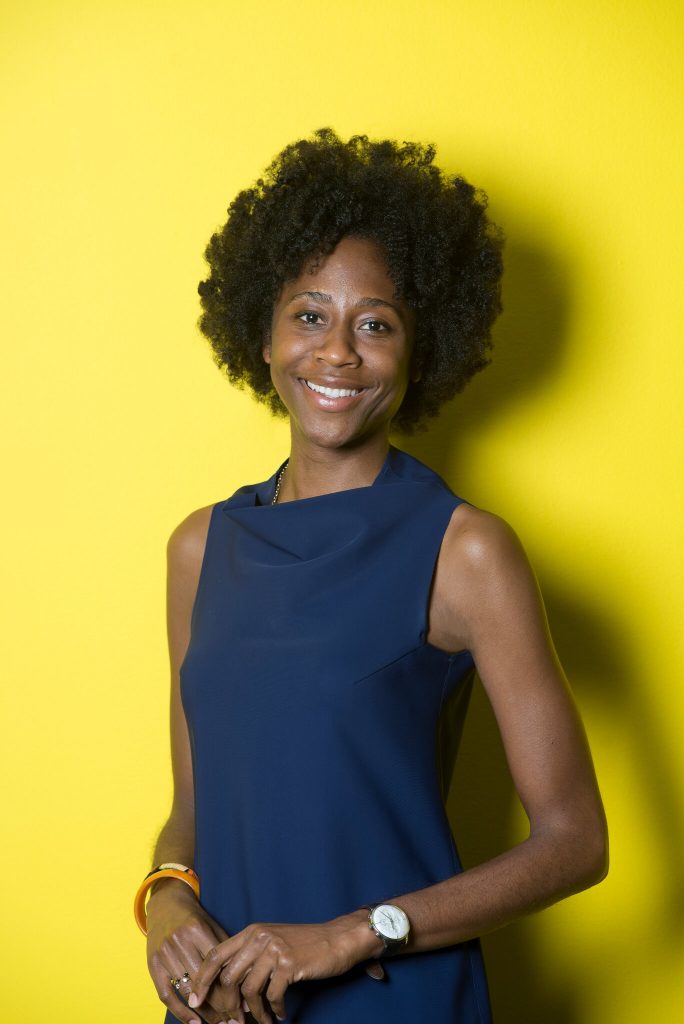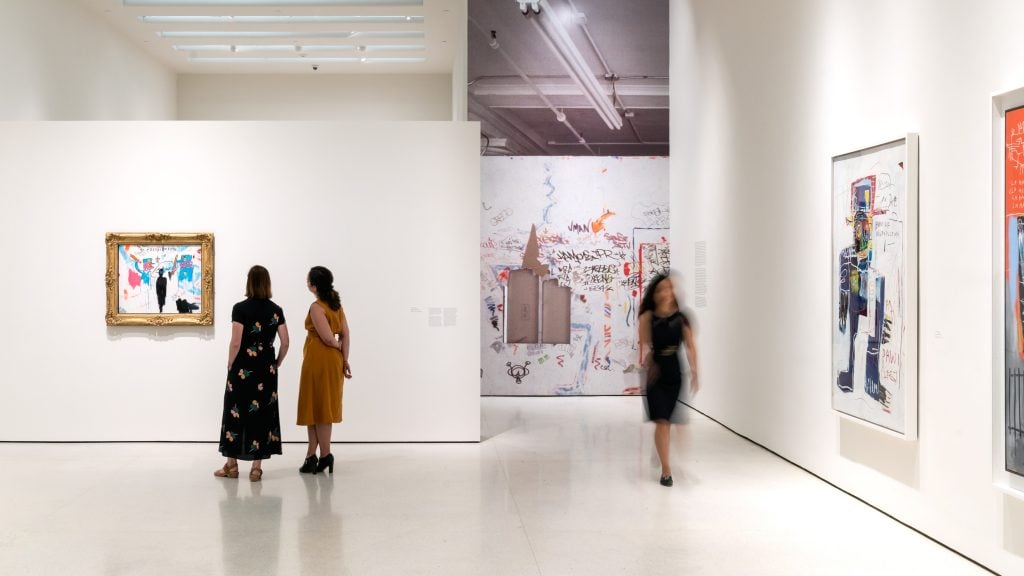People
The Guggenheim Taps Museum Veteran Naomi Beckwith as Its First Black Chief Curator
Beckwith will replace Nancy Spector, who left the museum last year.

Beckwith will replace Nancy Spector, who left the museum last year.

Artnet News

The Solomon R. Guggenheim Museum in New York has filled one of the most closely watched—and politically loaded—vacancies in the museum field. Naomi Beckwith, a highly regarded Modern and contemporary art expert who currently serves as senior curator of the Museum of Contemporary Art Chicago, has been named chief curator and deputy director of the New York institution.
The appointment is particularly significant because Beckwith, who is Black, will replace Nancy Spector, a 34-year veteran of the museum who resigned last year amid charges of racist management.
In her new role, which begins in June, Beckwith will oversee collections, exhibitions, publications, and curatorial programs at the museum, as well as provide strategic direction for the Guggenheim’s international network of affiliates in Bilbao, Venice, and Abu Dhabi. Prior to joining the MCA Chicago in 2011, Beckwith worked at the Studio Museum in Harlem.
The Guggenheim, even more publicly than most other US museums, has been reckoning for the past year with what its curatorial department described in a letter to leadership last year as “an inequitable work environment that enables racism, white supremacy, and other discriminatory practices.”
The letter came in the wake of criticism from the curator of the museum’s 2019 Jean-Michel Basquiat show, Chaédria LaBouvier. The first Black curator to organize a solo show at the Guggenheim, LaBouvier wrote on Twitter that “working at the Guggenheim w/ Nancy Spector & the leadership was the most racist professional experience of my life.” (Also in 2019, the museum hired its first full-time Black curator, Ashley James.)

Installation view of “Basquiat: Defacement” at the Guggenheim. Courtesy of the Guggenheim.
Over the summer, the Guggenheim’s board of directors brought in the law firm Kramer Levin to conduct an independent investigation into the allegations of mistreatment and found no evidence that LaBouvier was “subject to adverse treatment on the basis of her race.” At the same time, the Guggenheim announced that Spector would be leaving the museum.
Since then, the Guggenheim has announced a two-year plan to boost diversity, equity, and inclusion, including pledges to examine its exhibition and acquisition histories over the past decade and to hold implicit bias training.
In an interview with the New York Times, Beckwith—who staged the first solo museum show of the African American artist Howardena Pindell in 2018 and a major 2015 exhibition on the legacy of the Black avant-garde—said she would not have accepted the job if she were not confident the museum was committed to change.
“What I heard clearly from Richard [Armstrong, the museum’s director] is they are doing the work themselves,” she said. “They’re simply looking for a partner in that.”
In a statement announcing the appointment, Armstrong said: “With her highly regarded accomplishments, scholarship that contributes to building a revised canon of art history, and creative projects that connect artists of today with growing audiences, Naomi Beckwith will be a catalytic leader for our outstanding curatorial team.”
Beckwith, who has also worked with artists including the Propeller Group, Keren Cytter, and Leslie Hewitt, will take over curatorial leadership of a museum that has seen its budget curtailed. The institution laid off 24 employees in September, implemented salary cuts, and has an estimated budget shortfall of $12.6 million for 2020, according to a representative.
“One cannot overstate the iconicity and consequence of the Guggenheim Museum—yet, refusing to rest on its laurels, it readily presents projects that disrupt art history’s mythologies,” Beckwith said in a statement. “I look forward to merging our shared goals of expanding the story of art, and also working to shape a new reality for arts and culture.”